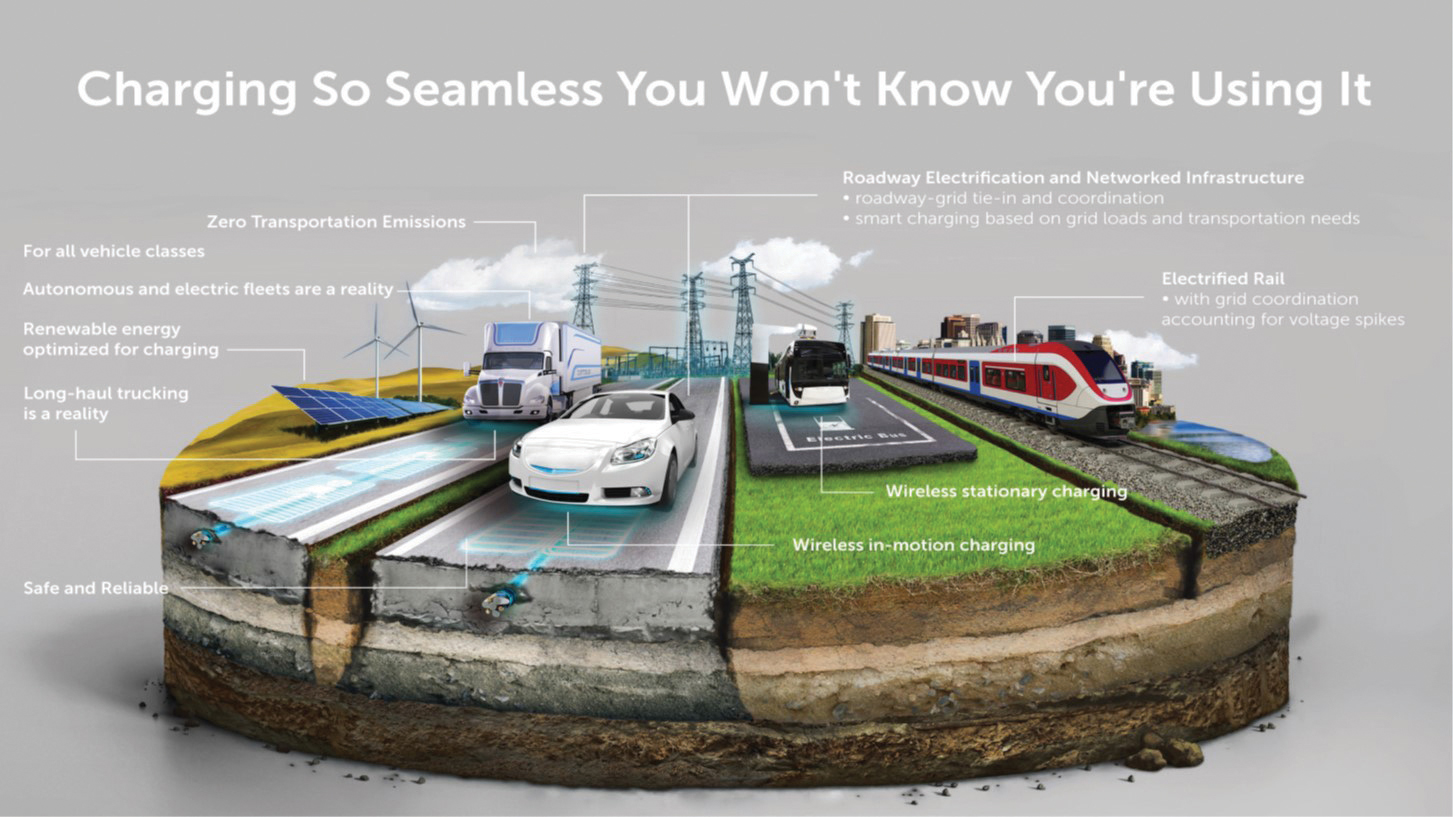ASPIRE
The transportation industry is in the midst of a transformation not experienced since the invention of the automobile. Vehicles drive the U.S. economy, transporting more than 11 billion tons of freight and traveling over 3 trillion miles per year. However, vehicle emissions seriously affect public health and the environment, and rising oil prices affect household budgets as well as our national economic stability and security.
Electric vehicles (EVs) offer tremendous opportunities to reduce emissions and near-road exposures to pollutants. In addition, EVs hold potential for other transportation innovations in shared mobility and automation that will shape data-driven policies encouraging advances. But efforts to expand adoption of EVs face significant challenges, centered around range and the supporting charging infrastructure.
Purdue University is playing a trailblazing role in overcoming these barriers as a core partner in the National Science Foundation (NSF)’s multi-university Advancing Sustainability through Powered Infrastructure for Roadway Electrification (ASPIRE) Engineering Research Center (ERC). Established in 2020 with a five-year, $26 million NSF grant, renewable to 10 years and $50.6 million, ASPIRE is dedicated to improving health and quality of life by developing new infrastructure that facilitates adoption of widespread, sustainable and equitable vehicle electrification. The ERC encompasses collaboration among universities, national laboratories, and more than 40 global industry partners.
The ASPIRE ERC is the first of its kind in the world to take a holistic approach to eliminating range and charging as obstacles to electrifying all vehicle classes, from passenger cars to heavy-duty trucks. The center focuses on creating innovative, shared wireless and plug-in charging infrastructure that brings the power to vehicles — where they are driven and parked.
Intended results include smaller and longer-lasting vehicle batteries, effectively unlimited EV range, and a seamless charging experience. ASPIRE leaders envision EVs becoming less expensive to buy and operate than gasoline and diesel counterparts, a resource to decarbonize the electric grid, and a perfect match with autonomous and connected vehicles.
ASPIRE’s Purdue team — headed by Campus Director and Adoption research thrust lead Nadia Gkritza, a professor of civil engineering and agricultural and biological engineering — recently embarked on two significant research projects, each expected to take two to three years:
In one of these ventures, Purdue and the Indiana Department of Transportation (INDOT) are working to create the world’s first contactless wireless-charging concrete pavement highway segment. The project calls for using magnetizable concrete, developed by German startup Magment GmbH, to help facilitate wireless power transfer to EVs as they are driven. Professor John Haddock and his team will test the structural integrity of the electrified roadway at the Indiana Department of Transportation Accelerated Pavement Testing facility in West Lafayette, Indiana.
A second test led by Professors Dionysios Aliprantis and Steven Pekarek at Purdue’s Vehicle Systems Laboratory will assess the capability of the system to transfer high levels of power wirelessly. Following pavement testing, analysis, and optimization research, INDOT will construct a quarter-mile-long testbed for charging heavy trucks operating at high power (200 kilowatts and above). Once testing is successfully completed, INDOT plans to use the new technology to electrify a segment of interstate highway in Indiana.
In the other pathbreaking ASPIRE project involving Purdue, the University is collaborating with the U.S. Department of Energy (DOE) and Utah State University to study and break down the human barriers to large-scale transit electrification – specifically, regarding buses. The Purdue team is identifying and analyzing transit users’ and non-users’ concerns and preferences. Findings will lead to articulation of policy implications, as well as recommendations on how transit agencies can increase ridership and promote wider public use of electric buses.
ASPIRE research is linked with educational, mentoring and outreach initiatives for students at all levels. Purdue graduate students are engaging in multi-institution collaborative research, mentoring undergraduate and K-12 students in research, and participating in K-12 outreach events. At the same time, Purdue undergraduate students are learning about the research through coursework and educational training initiatives, such as Vertically Integrated Projects (VIP), and gaining research experience from undergraduate summer programs.
Taken together, Purdue’s ASPIRE efforts hold strong promise to move the needle on both technology development and public acceptance, prompting wider and equitable electric vehicle adoption.
More information:
- Indiana DOT, Purdue Developing Wireless EV Charging for Highways
- The World’s First Wireless Charging Highway Segment
- Pavement That Wirelessly Charges EVs Will Be Tested in Indiana
- INDOT, Purdue To Develop Wireless Electric Vehicle Dynamic Charging Solution for Highway Infrastructure; Magnetizable Concrete

Charging So Seamless You Won’t Know You’re Using It
- Zero transportation emissions
- For all vehicle classes
- Autonomous and electric fleets are a reality
- Renewable energy optimized for charging
- Long-haul trucking is a reality
- Road electrification and networked infrastructure
- Electrified rail
- Wireless stationary charging
- Wireless in-motion charging
- Safe and reliable
Related Link: https://engineering.purdue.edu/ASPIRE
